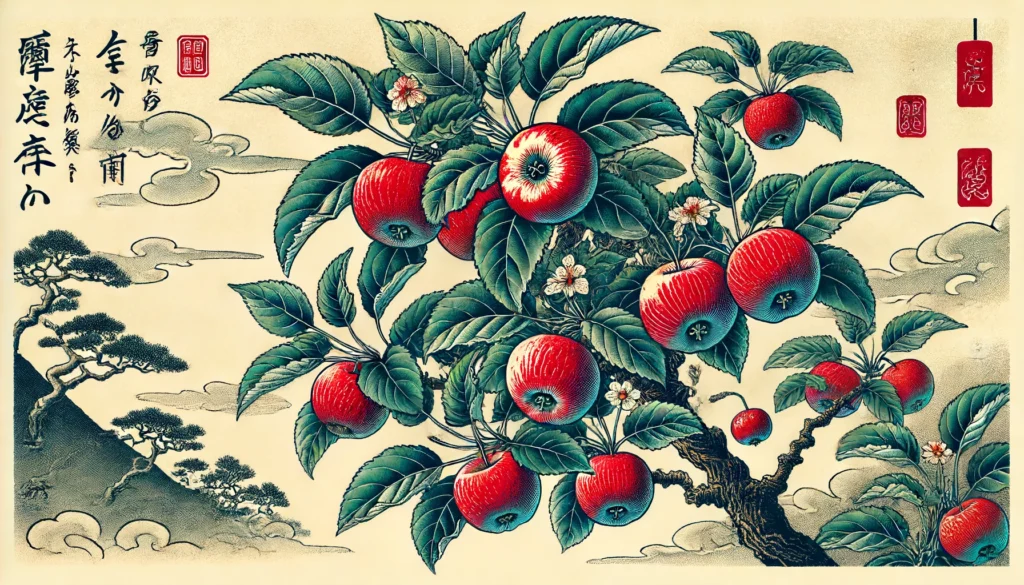

Home » Cat Plants » Is the Apple a Hazard for Cats?

Apples are a popular fruit enjoyed by humans, but the apple tree and its components can be toxic to cats. While the flesh of the apple is generally safe for feline consumption, other parts of the plant, such as the seeds, stems, and leaves, contain cyanide, a highly poisonous substance.
Apple trees are commonly found in orchards, gardens, and even urban areas, making it essential for cat owners to be aware of the potential risks.
Ingestion may cause mild gastrointestinal upset, but is generally not life-threatening.
Ingestion can result in mild symptoms like vomiting, diarrhea, or drooling. Rarely fatal but may require veterinary care.
Eating these plants can lead to more pronounced symptoms like abdominal pain, lethargy, or difficulty breathing. Veterinary intervention may be necessary.
Ingesting even small amounts can cause severe symptoms like organ damage, seizures, or cardiac failure without rapid treatment.
All parts of these plants are extremely poisonous to cats and can quickly lead to death, even with immediate veterinary care.
** Please note: Please note that toxicity level can vary based on the amount ingested and the specific cat. It's always best to keep these plants completely inaccessible to cats and seek immediate veterinary care or call the poison hotline if you suspect your cat has ingested any part of a toxic plant.
If a cat ingests any part of the apple tree containing cyanide, such as the seeds, stems, or leaves, they may experience various symptoms.
These can include vomiting, diarrhea, drooling, difficulty breathing, lethargy, and, in severe cases, seizures or coma.
It’s crucial to seek veterinary attention immediately if you suspect your cat has ingested a toxic portion of the apple tree.
If your cat has ingested a toxic part of the apple tree, your veterinarian may diagnose them with cyanide poisoning. The diagnosis process typically involves the following steps:
For more information on cyanide poisoning in cats, you can refer to the ASPCA Animal Poison Control Center or consult with your local veterinary clinic.

A: While it is uncommon, some cats can be allergic to apples. Symptoms of an allergic reaction may include itching, sneezing, and skin irritation.
A: Apples themselves are not toxic to cats, but the seeds, stems, and leaves contain cyanogenic glycosides, which can be harmful if ingested.
A: The seeds, stems, and leaves of the apple are toxic to cats because they contain cyanogenic glycosides, which can release cyanide when chewed and ingested.
A: Symptoms of apple poisoning in cats include vomiting, diarrhea, difficulty breathing, and lethargy. Immediate veterinary attention is necessary if ingestion is suspected.
A: If you want to give your cat apples, ensure that the fruit is peeled and seedless. Only offer small, plain pieces of apple flesh as an occasional treat.
A: If your cat eats apple seeds, contact your veterinarian immediately. Do not induce vomiting unless instructed by a veterinary professional.
The apple tree (Malus domestica) is a deciduous tree that has been cultivated for thousands of years. Its origins can be traced back to the wild apple (Malus sieversii) found in the Tian Shan mountains of Central Asia.
The apple was introduced to various regions through trade routes, such as the Silk Road, and eventually made its way to Europe and North America.
Throughout history, apples have held significant cultural and religious symbolism in many civilizations, including Greek, Norse, and European Christian traditions.
Please note: The information shared in this post is for informational purposes only and should not be considered as veterinary medical advice.
🐾 A hilarious or heart-melting cat video
🐾 Our latest paws-on review of a cool cat toy